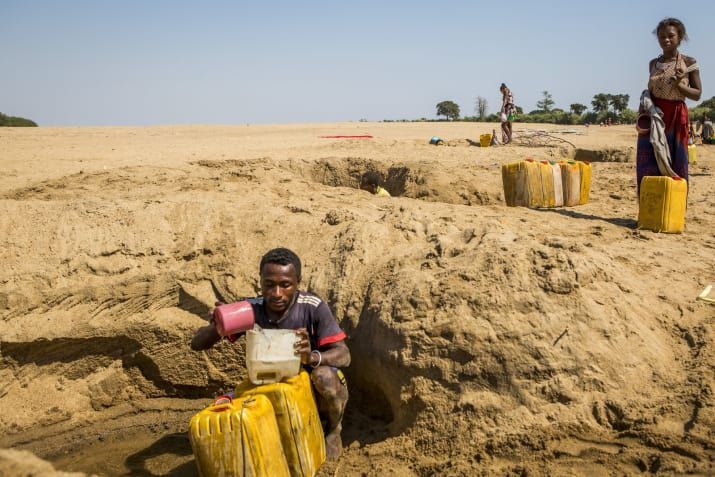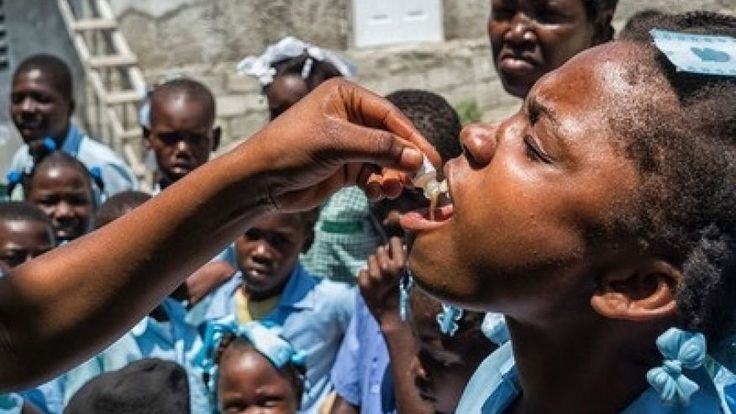
Understanding Cholera
Cholera is a severe diarrheal illness caused by the bacterium Vibrio cholerae. It primarily spreads through contaminated water and food. Cholera remains a significant health threat in areas with inadequate sanitation, poor hygiene, and limited access to clean drinking water. This disease can cause rapid dehydration and death if not promptly treated.
Causes of Cholera

The main cause of cholera is the ingestion of food or water contaminated with the Vibrio cholerae bacterium. Here are some common sources of contamination:
- Contaminated Water: Drinking or using untreated water from rivers, wells, or lakes contaminated with human waste.
- Unsafe Food: Consuming raw or undercooked seafood, fruits, and vegetables washed with contaminated water.
- Poor Sanitation: Lack of proper sewage systems and waste disposal methods can lead to the spread of cholera.
- Human-to-Human Transmission: While rare, direct contact with fecal matter of an infected person can also spread cholera.
Symptoms of Cholera
Cholera symptoms can range from mild to severe and usually appear within two hours to five days after exposure to the bacteria. The most common symptoms include:
- Watery Diarrhea: Profuse, watery diarrhea, often described as “rice-water stools” due to its pale, milky appearance.
- Vomiting: Frequent vomiting, which exacerbates dehydration.
- Dehydration: Signs include dry mouth, extreme thirst, low urine output, and sunken eyes.
- Leg Cramps: Caused by the rapid loss of fluids and electrolytes.
- Shock: Severe dehydration can lead to low blood pressure, rapid heart rate, and organ failure.
Diagnosis and Testing
Diagnosing cholera involves several methods to confirm the presence of Vibrio cholerae:
- Stool Sample Analysis: Laboratory testing of stool samples to identify the cholera bacteria.
- Rapid Diagnostic Tests (RDTs): These tests can detect the presence of cholera bacteria in stool samples within minutes, aiding in quick diagnosis and response during outbreaks.
Treatment for Cholera

Timely treatment is crucial for cholera patients to prevent severe dehydration and death. Effective treatment methods include:
- Oral Rehydration Solution (ORS): The primary treatment for cholera. ORS, a mixture of clean water, salts, and sugars, helps to replace lost fluids and electrolytes.
- Intravenous Fluids: In severe cases where oral rehydration is not sufficient, intravenous fluids are administered to rapidly restore fluid balance.
- Antibiotics: These can reduce the duration and severity of the illness by eliminating the bacteria. Common antibiotics used include doxycycline, azithromycin, and ciprofloxacin.
- Zinc Supplements: Particularly beneficial for children, zinc supplements can reduce the duration and severity of diarrhea.
Preventing Cholera
Preventing cholera involves several strategies to ensure access to clean water and improve sanitation and hygiene practices:
- Clean Water Supply: Ensuring access to safe drinking water by boiling, treating with chlorine, or using bottled water.
- Proper Sanitation: Implementing proper sewage disposal and waste management systems to prevent contamination of water sources.
- Hand Hygiene: Regular hand washing with soap and clean water, especially after using the bathroom and before eating or preparing food.
- Food Safety: Consuming thoroughly cooked food and avoiding raw or undercooked seafood and street food in areas with poor sanitation.
- Vaccination: Oral cholera vaccines (OCVs) such as Dukoral, Shanchol, and Euvichol-Plus are effective in providing temporary protection against cholera, particularly in high-risk areas.
Global Efforts and Awareness
International health organizations and governments play a crucial role in combating cholera through various initiatives:
- Emergency Response: Rapid deployment of medical teams and supplies during cholera outbreaks to provide immediate care and contain the spread of the disease.
- Water, Sanitation, and Hygiene (WASH) Programs: Initiatives to improve water quality, sanitation infrastructure, and hygiene education in vulnerable communities.
- Surveillance and Monitoring: Continuous monitoring of cholera outbreaks and maintaining accurate records to facilitate timely interventions and resource allocation.
- Public Health Education: Raising awareness about cholera prevention methods, symptoms, and the importance of seeking early treatment.
Cholera in History
Cholera has been a significant public health concern for centuries. Historical outbreaks, such as the London cholera epidemic of 1854, have shaped our understanding of disease transmission and public health. Dr. John Snow’s work during this outbreak demonstrated the link between contaminated water and cholera, leading to advancements in epidemiology and public health infrastructure.
Modern Challenges in Combating Cholera
Despite progress in medical science and public health, cholera continues to pose a threat, particularly in developing countries. Several factors contribute to the ongoing challenge:
- Urbanization: Rapid urban growth often outpaces the development of adequate water and sanitation infrastructure, leading to increased risk of cholera outbreaks.
- Climate Change: Changes in climate patterns can affect water sources and exacerbate the conditions for cholera transmission.
- Conflict and Displacement: War and displacement lead to overcrowded living conditions with poor sanitation, increasing vulnerability to cholera.
Innovations in Cholera Control
Recent innovations are making significant strides in cholera control and prevention:
- Portable Water Purification Systems: These systems provide safe drinking water in remote or disaster-affected areas, reducing the risk of cholera transmission.
- Advanced Diagnostic Tools: New rapid tests and mobile health technologies facilitate early detection and monitoring of cholera outbreaks, improving response times.
- Genomic Studies: Understanding the genetic makeup of Vibrio cholerae helps in developing targeted treatments and more effective vaccines.
Summary
Cholera remains a major health threat, especially in areas with poor sanitation and limited access to clean water. Understanding its causes, symptoms, and treatment is essential for effective management and prevention. Through global cooperation, improved hygiene practices, and continuous innovation, we can reduce the impact of cholera and protect vulnerable populations. Staying informed and supporting public health initiatives is crucial in the fight against this deadly disease.


